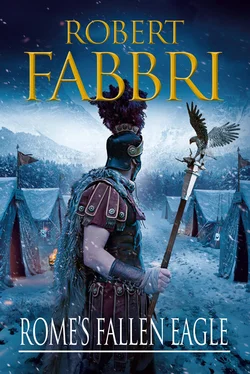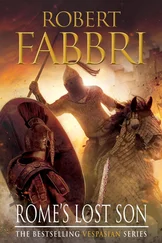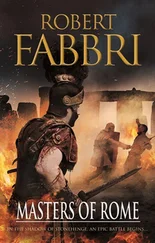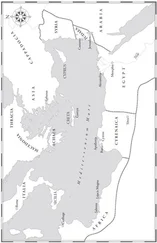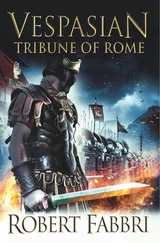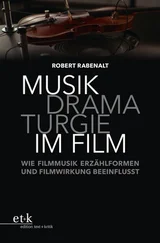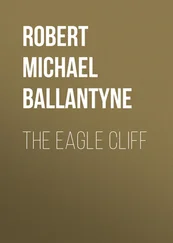Robert Fabbri - Rome’s Fallen Eagle
Здесь есть возможность читать онлайн «Robert Fabbri - Rome’s Fallen Eagle» весь текст электронной книги совершенно бесплатно (целиком полную версию без сокращений). В некоторых случаях можно слушать аудио, скачать через торрент в формате fb2 и присутствует краткое содержание. Год выпуска: 0101, Издательство: Corvus, Жанр: Исторические приключения, на английском языке. Описание произведения, (предисловие) а так же отзывы посетителей доступны на портале библиотеки ЛибКат.
- Название:Rome’s Fallen Eagle
- Автор:
- Издательство:Corvus
- Жанр:
- Год:0101
- ISBN:нет данных
- Рейтинг книги:4 / 5. Голосов: 1
-
Избранное:Добавить в избранное
- Отзывы:
-
Ваша оценка:
- 80
- 1
- 2
- 3
- 4
- 5
Rome’s Fallen Eagle: краткое содержание, описание и аннотация
Предлагаем к чтению аннотацию, описание, краткое содержание или предисловие (зависит от того, что написал сам автор книги «Rome’s Fallen Eagle»). Если вы не нашли необходимую информацию о книге — напишите в комментариях, мы постараемся отыскать её.
Rome’s Fallen Eagle — читать онлайн бесплатно полную книгу (весь текст) целиком
Ниже представлен текст книги, разбитый по страницам. Система сохранения места последней прочитанной страницы, позволяет с удобством читать онлайн бесплатно книгу «Rome’s Fallen Eagle», без необходимости каждый раз заново искать на чём Вы остановились. Поставьте закладку, и сможете в любой момент перейти на страницу, на которой закончили чтение.
Интервал:
Закладка:
On the stage below the plot had resolved to a happy conclusion and the characters were exiting to a wedding feast through a door in the scaenae frons , the two-storey scenery fronted with columns, windows, doors and arches. Sabinus pulled his hood further over his face as the final player turned to address the audience.
‘To all our friends here, we would gladly extend an invitation to join us; but though enough is as good as a feast, what is enough for six would be poor fare for so many thousands. So let us wish you good feasting at home and ask, in return, your thanks.’
As the audience burst into applause the German Bodyguards parted to allow a tall man, shrouded in a purple robe and sporting a gold diadem around his head, into the imperial box. He bowed to Caligula in an eastern fashion, putting both hands to his chest.
‘What’s he doing here?’ Sabinus asked Clemens in surprise.
‘Herod Agrippa? He’s been here for the last three months, petitioning the Emperor to extend his kingdom. Caligula’s been toying with him, making him suffer for his greed. He treats him almost as badly as he does Claudius.’
Sabinus watched the Judean King take a seat next to Claudius and exchange a few words with him.
‘Caligula will leave to take his bath soon,’ Clemens said as the applause started to die down. ‘On the way there he wants to hear a rehearsal of a group of Aitolian youths who are due to perform tomorrow. Callistus has had them wait above us in front of Augustus’ House just by the entrance to the passage that leads directly to those steps by the imperial box. You can get to there through that exit.’ He pointed to the extreme left of the gates that ran along the rear of the theatre; it was shut. ‘Knock on it three times, then wait a beat and repeat the signal. It’s guarded by two of my men, both centurions; they’re expecting you and will let you through. The password is “liberty”. Put your neckerchief over your face; the fewer people who can identify you the better if the worst comes to the worst. Chaerea, Cornelius and I will escort Caligula out of the box and then up the steps. As soon as you see us leave, make for the passage and walk down it; we should meet about halfway. I’ll delay his German Bodyguards by ordering them to prevent anyone following us up, so we’ll have a little time but not much; strike him as soon as you can.’ Clemens held out his right arm.
‘I will, my friend,’ Sabinus replied grasping it. ‘It’ll be a blow straight to the neck.’
They held each other’s gaze for a moment — the grips on one another’s forearms firmer than they had ever been — then nodded and parted without another word, both aware that this day may be their last.
Sabinus watched Clemens enter the imperial box and felt calm spread through him. He cared not whether he lived or had died by the close of the day; his one concern was to avenge the brutal and repeated rape of Clementina by the man who had set himself up as an immortal god over all men. Today that false god would taste the limits of his immortality. Clementina’s face, as she pleaded with him to save her from her fate, burned in his mind. He had failed her then; he would not do so now. He gripped his sword hilt again; this time his hand was dry. He breathed deeply and felt his heart beating slowly and steadily.
A troupe of acrobats took to the stage and began hurling themselves around, spinning, tumbling and cartwheeling, only to be met by a disinterested rumble of conversation from the audience, no matter how high or far they leapt. All eyes were on the Emperor as he prepared to leave.
Sabinus saw the Germans salute Clemens as he barked an order at them. Cassius Chaerea and Cornelius Sabinus moved from their positions and came to stand behind the Emperor’s chair. The Senior Consul showered one last passionate fall of kisses on the beautiful red slippers, only to be kicked aside by the objects of his adoration as Caligula stood up.
The crowd cheered, hailing Caligula as their god and Emperor; but their god and Emperor did not acknowledge them. Instead, he looked down at Claudius and lifted his chin to examine his throat, passing his finger across it like a knife; terrified, Claudius twitched and drooled over his nephew’s hand. With a look of disgust, Caligula wiped off the saliva on Claudius’ grey hair and shouted something, unheard over the din, into his uncle’s face. Claudius immediately got to his feet and lurched out of the box; the Germans parted for him, and he disappeared as fast as his weak legs could take him. Sabinus stayed focused on Caligula, who then turned his attention to Herod Agrippa and with a couple of bellows sent him, bowing obsequiously, from the box. Caligula threw back his head, laughing, and then mimicked Herod Agrippa’s fawning exit, much to the amusement of the crowd. Having milked the comedy value from the situation he swept from the box, slapping Chaerea’s arse on the way. Sabinus watched the tribune tense and his hand begin to go for his sword; it stopped mid-movement when Clemens caught his eye, and fell back to his side with fingers flexing as he and Cornelius followed Caligula to the steps. Just before Clemens left the box his eyes flicked up to Sabinus and widened slightly; he strode past the German Bodyguards, half of whom followed him to block the steps to the public whilst the imperial party climbed them, leaving the Consul, nursing his bruised face, watched over by the eight remaining Germans left guarding the imperial box.
All was set.
Sabinus turned and made his way along the rear of the last row of seating to the gate that Clemens had indicated. Pulling up his neckerchief, he put his knuckles to the wood and gave the signal; within an instant a bolt slid back, the gate opened a fraction and he was staring into the dark, hard eyes of a Praetorian centurion.
‘Liberty,’ Sabinus whispered.
With a slight inclination of the head the centurion stepped back, opening the gate; Sabinus walked through.
‘This way, sir,’ a second centurion, his back already turned, said as the first closed and bolted the gate.
Sabinus followed the man along a paved path climbing gently up the last few feet of the Palatine; from above a close-harmony dirge drifted down. Behind him he heard the rhythmic clacking of the first centurion’s hobnailed sandals as he followed.
After thirty paces they came to the summit. To his left Sabinus could see two Praetorian centuries, clad in tunics and togas, standing at ease next to the Aitolian youths rehearsing their melancholy hymn in front of what remained of the imposing facade of Augustus’ House. Once an architectural study in elegance combined with power, it was now disfigured by the series of extensions that Caligula had added. They snaked their way forward, each more vulgar and ill-conceived than the one before, and cascaded down the hill to the Temple of Castor and Pollux at the foot of the Palatine, which now — sacrilegiously in the secret part of many people’s minds — served as a vestibule to the whole palace complex. It was to the closest of these extensions, just ahead of him, that the centurion led Sabinus.
Читать дальшеИнтервал:
Закладка:
Похожие книги на «Rome’s Fallen Eagle»
Представляем Вашему вниманию похожие книги на «Rome’s Fallen Eagle» списком для выбора. Мы отобрали схожую по названию и смыслу литературу в надежде предоставить читателям больше вариантов отыскать новые, интересные, ещё непрочитанные произведения.
Обсуждение, отзывы о книге «Rome’s Fallen Eagle» и просто собственные мнения читателей. Оставьте ваши комментарии, напишите, что Вы думаете о произведении, его смысле или главных героях. Укажите что конкретно понравилось, а что нет, и почему Вы так считаете.
